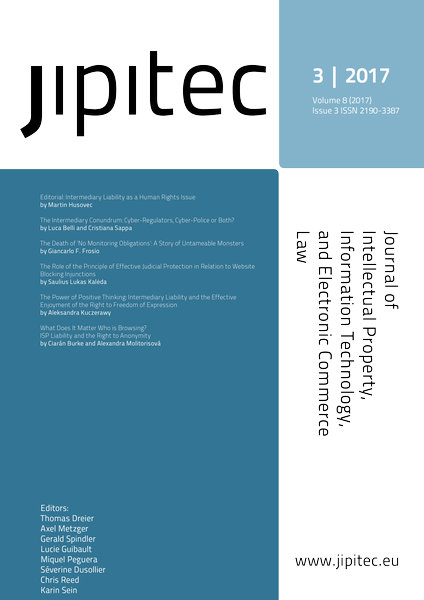The Death of ‘No Monitoring Obligations’: A Story of Untameable Monsters
Keywords:
Proactive monitoring obligations, filtering obligations, fundamental rights online, intermediariesAbstract
In imposing a strict liability regime for alleged copyright infringement occurring on YouTube, Justice Salomão of the Brazilian Superior Tribunal de Justiça stated that “if Google created an ‘untameable monster,’ it should be the only one charged with any disastrous consequences generated by the lack of control of the users of its websites.” In order to tame the monster, the Brazilian Superior Court had to impose monitoring obligations on Youtube; this was not an isolated case. Proactive monitoring and filtering found their way into the legal system as a privileged enforcement strategy through legislation, judicial decisions, and private ordering. In multiple jurisdictions, recent case law has imposed proactive monitoring obligations on intermediaries across the entire spectrum of intermediary liability subject matters. Legislative proposals have followed suit. As part of its Digital Single Market Strategy, the European Commission, would like to introduce filtering obligations for intermediaries in both copyright and AVMS legislations. Meanwhile, online platforms have already set up miscellaneous filtering schemes on a voluntary basis. In this paper, I suggest that we are witnessing the death of “no monitoring obligations,” a well-marked trend in intermediary liability policy that can be contextualized within the emergence of a broader move towards private enforcement online and intermediaries’ self-intervention. In addition, filtering and monitoring will be dealt almost exclusively through automatic infringement assessment systems. Due process and fundamental guarantees get mauled by algorithmic enforcement, which might finally slay “no monitoring obligations” and fundamental rights online, together with the untameable monster.Published
2017-11-30
Issue
Section
Special Issue: Intermediary Liability as a Human Rights Issue

